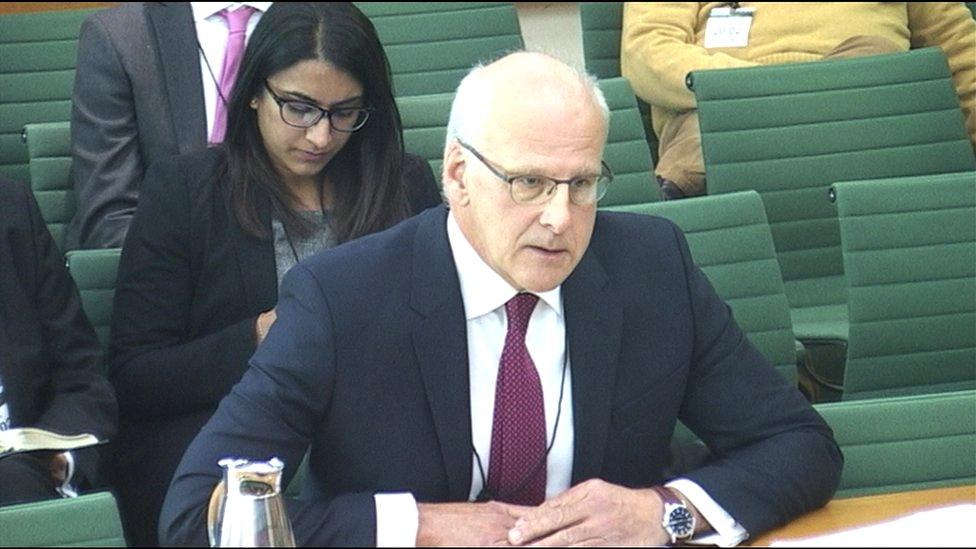Top City regulator used tax break scheme
- Published

The incoming head of the financial industry regulator had to repay tax after using an unapproved tax break scheme.
Charles Randell, who becomes chair of the Financial Conduct Authority in April, told MPs he had made an "error of judgement" by putting money into Ingenious Film Partners 2.
The scheme makes use of tax breaks available to promote film productions.
Mr Randell paid into the scheme between 2006 and 2011.
He told MPs on the Treasury Committee that the scheme had been recommended to him by a financial advisor and he had been assured it was approved by HMRC.
But Mr Randell said that it had been "an error of judgement" that he had failed to further investigate those assurances.
"I was reassured that this partnership had been discussed with senior officials at HMRC, who had indicated that they approved of it," he told MPs.
"It's clear to me now that, far from taking any comfort from that, I should have seen it as a warning signal."
Legal battles
When HMRC ruled that the tax scheme was not valid, Mr Randell had to pay back £114,000 plus interest.
The Ingenious tax schemes attracted investment from many high-profile figures. The cash raised has been used to help produce films including, Avatar, Life of Pi and Die Hard 4.
But Ingenious has lost several legal battles with HMRC, resulting in its clients having to pay unpaid tax.
It was estimated that the most recent ruling, in June of last year, could cost clients close to £700m.
'Clever wheeze'
Mr Randell was appearing at a parliamentary hearing into his appointment to chair the FCA, which is accountable to Treasury and parliament.
At the time of his investments in the Ingenious scheme he was a partner at the city law firm Slaughter and May and an advisor to the government.
He agreed with Nicky Morgan, chair of the Treasury Committee, when she asked Mr Randell whether the scheme would, to a member of the public, look like "some rather clever tax wheeze ... the sort of scheme that is not open to many of the consumers who invest in businesses regulated by the FCA".